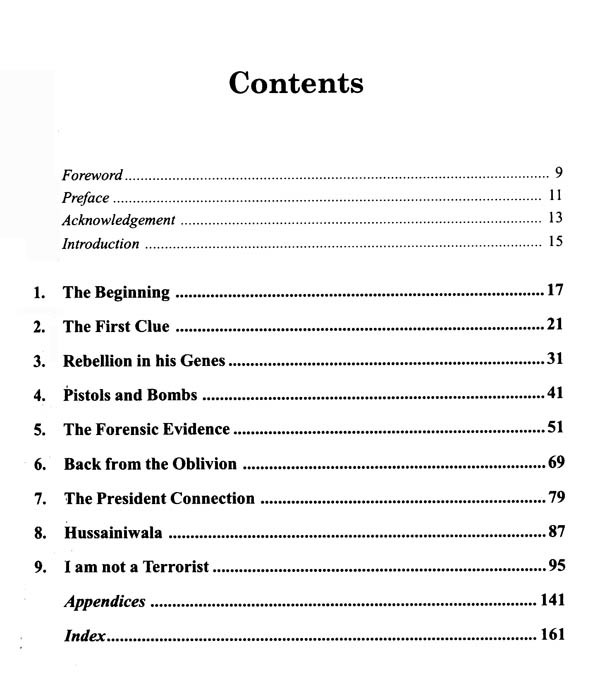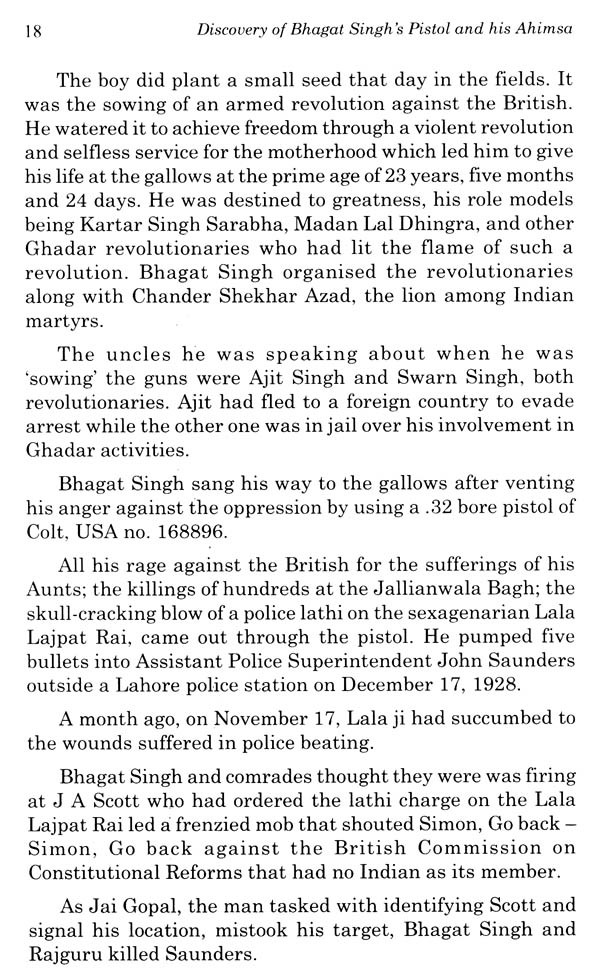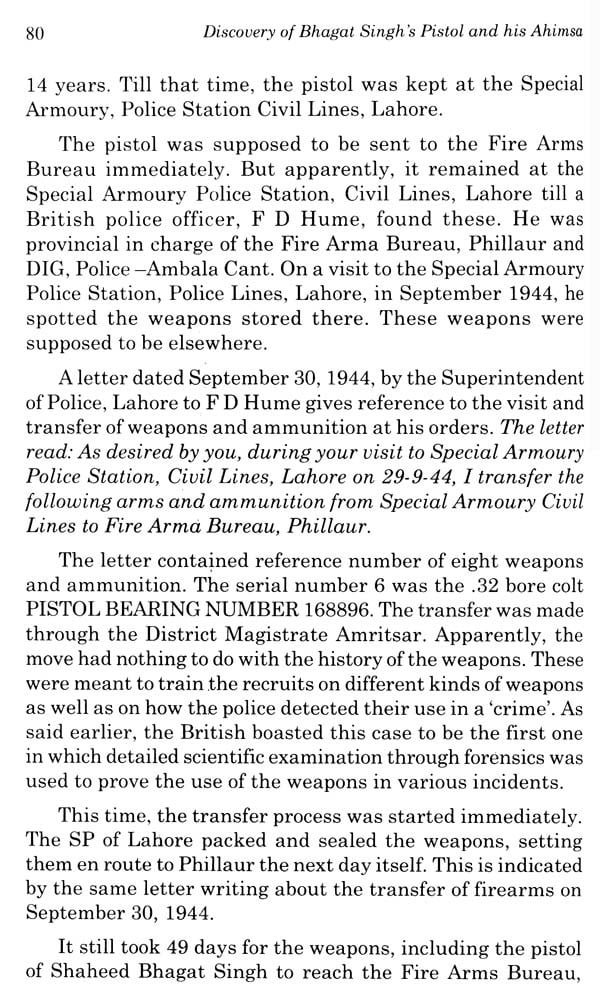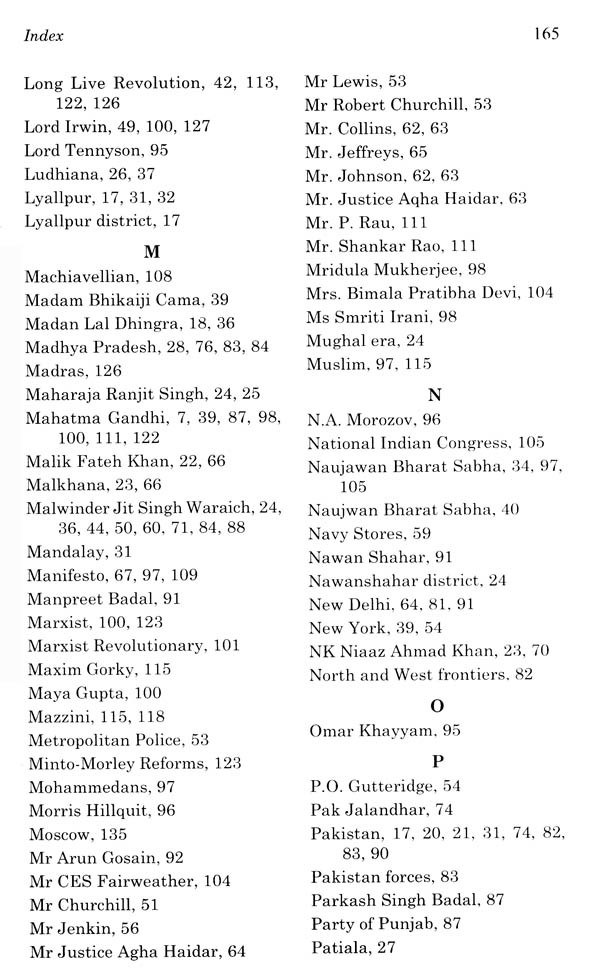
Discovery of Bhagat Singh's Pistol and his Ahimsa
Book Specification
| Item Code: | UBC746 |
| Author: | Jupinderjit Singh |
| Publisher: | Kalpaz Publications |
| Language: | English |
| Edition: | 2018 |
| ISBN: | 9789386397805 |
| Pages: | 168 |
| Cover: | PAPERBACK |
| Other Details | 8.50 X 5.50 inch |
| Weight | 190 gm |
Book Description
In the Indian public imagination, Bhagat Singh's name remains associated with the assassination of a British policeman, Assistant Police Superintendent John Saunders, on December 17, 1928, in Lahore. Indian people applauded this act of defiance and retribution.
But happened to the pistol used by the great martyr Bhagat Singh in gunning down Saunders? The weapon was last seen in public in the late 1930s when a Lahore court had handed it over to the police for custody. The whereabouts of the historic pistol after that remained a matter of mystery.
Only naturally, many historians, researchers and journalists have been unearthing various relics associated with the Shaheed-e-Azam, but the gun remained traced. It fell to Jupinderjit Singh's fate to discover the pistol. The photo of the weapon first appeared in The Tribune on November 23, 2016.
Here, Jupinderjit Singh tells the story of how he went. about tracking the gun. This fascination with the pistol also propelled him to explore the character and political thinking of Shaheed Bhagat Singh.
The idea of this book developed soon after I discovered the lost pistol of the great martyr in November 2016. Bhagat Singh had used it to kill a British Police Officer J. P. Saunders at Lahore in 1928. The last written record of the pistol was in 1931 when a Lahore court handed over it to police for safe keep.
As I held the gun before the BSF officers in Indore, I felt Goosebumps and a lump in my throat. I was touching something which the great hero of India's freedom struggle had carried with him. But even though my mission in finding the pistol was accomplished, there was something still missing about the relevance of it all. I noticed Bhagat Singh never used this or any other weapon again in his life to kill someone. Why didn't he? Was there a transition in him on how to achieve freedom? for the country?
I tried to know the martyr, to understand his ideology, his longing to get the nation freed, his idea of revolution and his views on violence and non-violence.
The journey is contextualized in the tumultuous days of the "Inquilab Zindabad" movement ushered in by young rebels, who took the country's freedom struggle by the storm with their revolutionary acts, ideas and the formation of HSRA-Hindustan Socialist Republic Association, a low-profile debutant organization that manifested at Delhi in September, 1928 and climaxed at Lahore in March 1931.
The particular episode commences with the murder of J. P. Saunders, a British police officer, in broad daylight. He was exiting the district police office at 4 pm on December 17, 1928, when Bhagat Singh, emptied the magazine of the pistol in question.
All this while there was little known about Bhagat Singh.
He was soon to be known all around courtesy by Hindustan Socialist Republic Association (HSRA) posters about the killing.
The British Police viewed it as a typical terrorist act and categorized it as a simple matter of revenge killing.
**Contents and Sample Pages**













